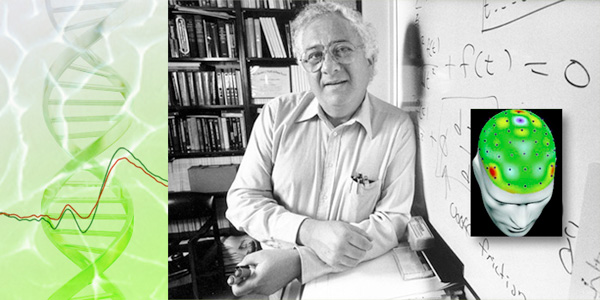Changing What We Know About Alcoholism
By Office of the President | May 6, 2025

More than 35 years ago, Downstate’s Henri Begleiter Neurodynamics Lab launched a groundbreaking study on alcohol use disorders. The result, the Collaborative Study on the Genetics of Alcoholism (COGA), continues to shape our understanding of addiction, recovery, and the influence of genes, neurodevelopment, and the social environment.
COGA follows nearly 18,000 individuals from more than 2,200 families, many with multiple members affected by alcohol use disorder (AUD) over the lifespan. By tracking participants across decades, researchers have gathered a rare combination of behavioral, clinical, neurodevelopmental, neurocognitive, and genomic data in the context of familial and social-environmental influences. This multi-dimensional approach reveals how biology and life experiences interact across the lifespan.
What began with six institutions has grown to include 10 research centers nationwide with multidisciplinary expertise from clinical care to molecular studies. COGA’s scope is unmatched. It has helped identify early warning signs of addiction in young people, documented how the brain changes with heavy drinking, and shown how inherited traits and life circumstances shape a range of addiction and mental health outcomes.
By opening access to its well-curated database, COGA has fueled hundreds of independent research projects and helped train a new generation of scientists shaping addiction research. For example, the study now includes cutting-edge functional genomics, using stem cells from participants to model how brain cells respond to alcohol at a molecular level.
Each month, COGA investigators—genomics, neuroscience, psychology, and molecular biology experts—gather to share ideas and spark new directions. Their collaborative work continues to challenge old assumptions, uncover new genomic and neurocognitive risk factors, and explore the social-environmental forces that influence vulnerability and resilience to addiction.

Left to Right: Bernice Porjesz, Ph.D., Jacquelyn Meyers, Ph.D.
COGA has produced more than 600 publications and remains a springboard for early- and mid-career scientists. Its strength lies in its structure—a long-running, multi-generational study built on collaboration and scientific depth.
From the beginning of the study until now, COGA’s leadership has been at Downstate, first with Henri Begleiter, Ph.D., as founding national Principal Investigator (1989-2006) and then, for the last 19 years, with Bernice Porjesz, Ph.D. (2006-present) as PI, joined by Jacquelyn L. Meyers, Ph.D., who co-leads COGA’s Brain Function Project.
Downstate proudly continues leading this landmark effort to understand better one of the most complex public health challenges of our time. It will continue leading this critical effort to understand better one of our time’s most complex public health challenges.
Tags: Psychiatry, Research